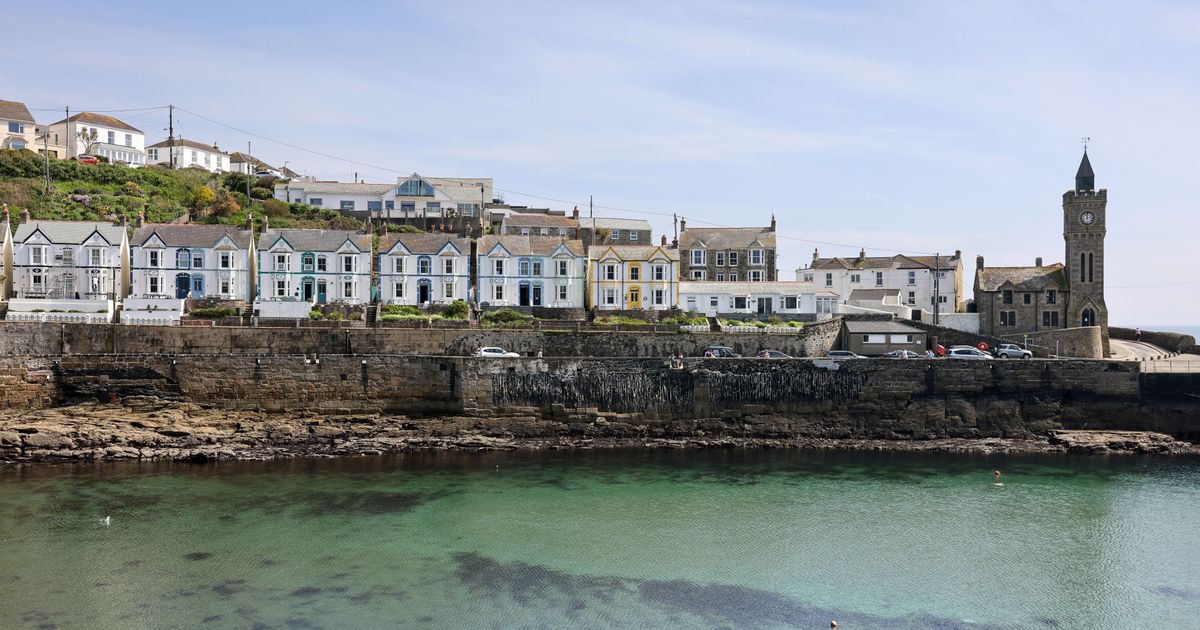Businesses in one of Cornwall’s most iconic coastal towns are reportedly in “survival mode” as a decline in tourism leaves large numbers of holiday homes empty, with the community “trying to keep its head above water” as locals struggle to find homes to rent or buy.
Cornwall has long been one of the UK’s most sought-after ‘staycation’ destinations – and this popularity has reached a peak during the Covid pandemic. The small but picture-perfect town of Porthleven was one of the coastal communities to benefit from the Covid boom.
However, businesses are reporting a sharp drop in visitor numbers this year, and the finger of blame has been pointed at “greedy” holiday home owners – who are charging thousands of pounds a week for their properties.
Read more: Cornwall’s coastal gem where ‘summer’ has arrived, but tourists aren’t there yet
Read more:
Ross Sloan is the head chef at the renowned Kota restaurant on Porthleven’s historic harbour, now home to some of the UK’s best restaurants. The acclaimed eatery is the flagship restaurant of Jude Kereama, who was a favourite in BBC’s Great British Menu 2021 and was named ‘Chef of the Year’ in the 2019 Trencherman’s Guide Awards.
Kota has three AA Rosettes, a Michelin Bib Gourmand, was named ‘Restaurant of the Year’ in the Cornwall Life Food and Drink Awards and was one of The Telegraph’s Top 50 Summer Restaurants in Britain. However, head chef Ross Sloan admits that even Kota has seen a big difference in trade this year, the Express reports.
Speaking to the newspaper, he said: “We are running at full capacity – but we have to streamline things and reduce staff. And if we are busy, we have to make do.
“The thing is, we are very cheap for the quality of our food. Where else can you get a tasting menu as good as ours for £75?
“Other places charge the same prices but don’t offer the same quality. And many businesses – which depend on tourists – are now in survival mode.
In recent years, big name chefs such as Rick Stein and Michael Caines have opened restaurants in Porthleven, only to close within a year or two. Sloan believes this is because they have relied too much on tourism – which can be a fickle mistress.
“They just don’t do it right here,” Mr. Sloan said of these culinary heavyweights. “The restaurants were too expensive — the locals didn’t want to eat there.”
Local trade is therefore the backbone of most successful businesses in Cornwall, and Mr Sloan says the fall in tourism this year is hitting those businesses that rely on tourism the hardest.
But why has tourism declined? Sloan lists a host of factors.
He said the blame lies with landlords because they are “greedy” and “push prices up so high that people who come on holiday can no longer afford to eat out”.
He added that “people can go abroad for much less than a holiday here” and said he believes people “want to get out of this country”.
Mr Sloan’s sentiments are shared by Kelvin Batt, owner of Shoals Brewery, housed in an old shipyard next to Kota restaurant, and the harbourside restaurant Mussel Shoal, which prefers “social dining” to Kota’s fine dining.
Join CornwallLive on WhatsApp and be the first to know what’s happening near you – Cornwall Live
Speaking to Express.co.uk, he said: “If you are a business and you are dependent on tourists, you are going to struggle. You need support from local people to survive.
“My businesses are much more about local business – the brewery is about 80 percent local, business. The Mussel Shoal is about 80 percent local.”
“Bookings have dropped – a lot of holiday homes are empty. The holiday home owners don’t want people to know. I think they’ve become a bit too greedy with the prices.”
“If you spent $2,000 on a vacation home for a week, you’re not going to eat out every night. The cost of living has gone up for everyone and people just don’t have the money.”
“If you focus on local trade, you’ll be fine. But anyone who relies on tourism will have a hard time.”
Get the best stories about the things you love most, curated by us, delivered to your inbox every day. Choose what you like here
